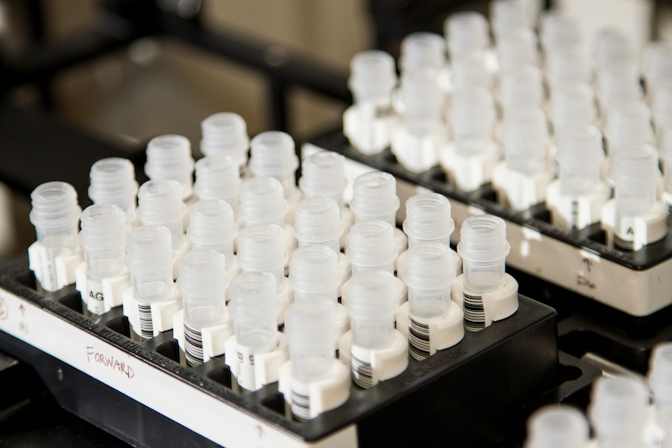
Photo by MART PRODUCTION
THCA (tetrahydrocannabinolic acid) is blowing up as the go-to alternative cannabinoid for people wanting a “legal” THC loophole. It isn’t that different from THC—it’s basically the same thing, just in its raw, unheated form. Once you spark it, vape it, or bake it, THCA turns into good ol’ Delta-9 THC.
Which begs the question: if you’ve got THCA in your system, will a drug test call you out?
Let’s get into the details because when it comes to weed and testing, you don’t want any surprises.
What Is THCA? The Hidden High

Found in freshly harvested cannabis or hemp, THCA won’t get you high on its own. But once you fire it up (via heat, aka decarboxylation), it transforms into Delta-9 THC, the psychoactive compound responsible for that classic high.
So why is THCA making waves? Legal loopholes. Thanks to the 2018 Farm Bill, hemp-derived products are federally legal as long as they contain less than 0.3% Delta-9 THC by dry weight.
Interestingly, that law doesn’t account for THCA, along with tons of other alternative cannabinoids. As long as the product technically meets the THC threshold before decarboxylation, many cannabinoids like THCA slips through the cracks.
This has opened the door for THCA-rich flower to be sold legally under the guise of “hemp.” Once you light it up, though, you’re effectively smoking THC. It’s a clever workaround that has sparked a mini-revolution in cannabis markets across the U.S., especially in states where recreational weed remains illegal.
THCA also has an interesting backstory. Historically, cannabis wasn’t bred for THCA—it was bred for THC. But as legal restrictions tightened, breeders pivoted toward producing hemp with high THCA levels while keeping Delta-9 THC technically compliant.
Will THCA Come Up On A Drug Test?
Yes, THCA can show up on a drug test.
Drug tests don’t specifically look for THC or THCA—they screen for metabolites, primarily THC-COOH. This is the compound your body produces after metabolizing THC.
When you consume THCA in its raw form, like in tinctures or smoothies, it typically won’t convert into enough THC to create those metabolites. But the moment you apply heat—whether by smoking, vaping, or baking—THCA turns into Delta-9 THC, which then metabolizes into THC-COOH.
If you’re consuming THCA flower or extracts in ways that activate it, your body treats it no differently than regular THC. That means a standard urine or blood test will flag you.
So, if you’re navigating drug tests, THCA isn’t the loophole you’re hoping for. Consider this your heads-up to plan accordingly.
THCA Products
THCA + Delta 9P 5-Gram Disposable - Blazed By Binoid
The Blazed Strongest 5-gram THCA + Delta 9P disposable isn’t just another vape; it’s the vape.
Packed with a next-level blend of premium Liquid Diamonds THCA, Delta 9P, and THC-JD distillates, it’s created for maximum impact. Combined with flavorful live resin terpenes and crafted into ten bold strains, it’s a great vaping experience. Think smooth hits, huge clouds, and zero clogs or leaks—just pure, unfiltered excellence.
Use discount code Herb25 for 25% off.
THCA Hemp Flower By Bloomz
If you want to try one of the best THCA products on the market, we present you the THCA Hemp Flower by Bloomz. A revolutionary and one-of-a-kind product that will leave you speechless.
With exceptional potency, THCA hemp flower provides an incredible mind and body experience.
THCA hemp flower is perfect for a unique and potent experience. Its premium quality and variety of size and strain options make this THCA flower an exceptional choice for hemp lovers.
5 Gram THCA + THCM Disposable Vape – Exclusive Series By Binoid
Prepare for a unique and provocative experience with the 5 Gram THCA + THCM Disposable Vape by Binoid! Are you ready to step into a world of powerful clouds?
Imagine immersing yourself in a groundbreaking combination of THCA, THCM, and HHCP distillate in a 5-gram presentation. It’s a true vape wonder! But that’s not all. They’ve taken the experience to the next level by adding live resin terpenes for superior flavor and potency.
Use code HERB25 for 25% off.
What Affects THCA Detection

NCI / Unsplash
Timing and Frequency
The timing of your last dose plays a crucial role. If it’s been more than five weeks since your last intake, chances are you won’t have a problem. Also, the frequency of use is important.
THC-COOH is eliminated from the body at the same rate, regardless of the amount present. Daily use over several weeks can prolong the elimination time. On the other hand, infrequent use may cause THCA to remain for only a couple of days.
Individual Metabolism
Metabolism varies among individuals, affecting the efficiency of THC-COOH being broken down and eliminated. Factors such as diet, immune function, thyroid function, and overall health contribute to these differences.
THCA Product Potency
THCA-infused products, such as tinctures and jelly beans, come in different milligrams. Therefore, the potency of the product consumed can influence the rate at which THCA is processed. Higher milligram strengths may take longer to eliminate from the body than lower doses.
It is crucial to remember that these factors interact and can vary from person to person. If you are concerned about possible drug testing, it is advisable to exercise caution and consider abstaining from THCA.
Final Opinion
In conclusion, while some people may expect that THCA consumption will not result in a positive drug test, the reality is that both THCA and THC are converted to THC-COOH, the target metabolite of drug testing.
Different types of drug tests can detect THCA, including urine, saliva, hair, blood, and perspiration tests. In addition, factors like the timing and frequency of THCA consumption, individual metabolism, and the potency of the product consumed can influence the likelihood of failing a drug test.
Herb Recommended Products:
READ MORE













